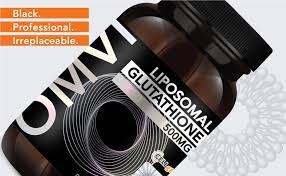Glutathione is known as the master antioxidant in the human body, playing a crucial role in detoxification pathways, immune support, energy production, gene expression, and cellular communication. It is comparable in cellular abundance to glucose, potassium, and cholesterol. Glutathione protects against various toxic compounds and pollutants encountered in everyday life, such as free radicals, mercury, alcohol, and organic pollutants/pesticides.
Liposomal glutathione is glutathione in a liposomal form, encapsulated in microscopic liposomes. This encapsulation enhances absorption and allows glutathione to be efficiently transported into cells. The active form of glutathione is reduced glutathione (L-glutathione), which performs various roles in detoxification, immunity, and more.
The difference between liposomal glutathione and reduced glutathione lies in their delivery and absorption. While reduced glutathione is the active form, liposomal glutathione is protected from the stomach's harsh environment by liposomes, enabling it to pass through cell membranes for direct cellular use.
Benefits and uses of liposomal glutathione include:
-
Supports Detoxification Pathways:
- Assists in both phases of detoxification, helping process toxins and rendering them inactive for elimination.
-
Supports Mitochondrial Function:
- Protects mitochondria, the cell's energy producers, from damage caused by free radicals and toxins.
-
Promotes Healthy Aging:
- May support energy levels, immunity, and neurological function in older adults by replenishing glutathione levels.
-
Supports Brain Health:
- Protects the brain from toxic damage and oxidative stress, potentially benefiting neurodegenerative diseases.
-
Supports Immunity:
- Enhances immune response and immune function markers.
Liposomal glutathione is designed to be more bioavailable than traditional forms, allowing for improved cellular absorption. Potential side effects are generally low, but individuals with sensitivities or complex health issues may experience a die-off reaction.
Symptoms of glutathione deficiency include sluggishness, fatigue, brain fog, poor memory, lowered immune function, digestive issues, joint pain/muscle stiffness, and skin problems. Dietary sources of glutathione include foods rich in its precursor amino acids and nutrients like B vitamins, vitamin C, vitamin E, selenium, and omega-3 fatty acids.
In summary, liposomal glutathione offers a convenient way to support various aspects of health, including detoxification, energy production, healthy aging, brain health, and immunity. Always consult with a healthcare professional before incorporating supplements into your routine.

